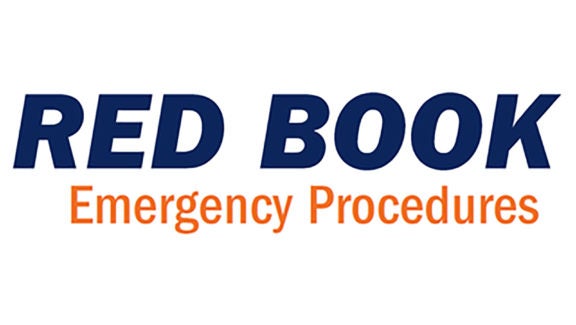
Important Reminders as Respiratory Virus Season Begins
Many inpatient and ambulatory clinic teams are being impacted as COVID rates are on the rise in Virginia, and as we embark on flu season. Please review the following guidance to help keep yourself and others healthy. If you have any questions, please escalate through your help chain.
Patient Care
- Patients may request that their healthcare providers wear a mask, whether during ambulatory appointments or within the hospital.
- Ask patients about their masking preferences.
- Ensure that mask and sanitizer stations remain stocked.
- Information on flu and covid vaccines for patients will be forthcoming.
Team Members
Get vaccinated:
Flu
- Flu vaccines are required for team members by Oct. 31, 2024 (per Health System Policy OCH-002). Walk-in vaccine clinics are being held at various University Medical Center locations through Oct. 31. See the clinic schedule, FAQs, and other details on the Employee Health site.
COVID
- The COVID vaccine is not required by health system policy but is strongly encouraged. Team members may receive the vaccine from their primary care provider; a UVA Health retail pharmacy (book via MyChart or call 434.297.4829); UVA Health Employee Primary Care (book via MyChart), or a community pharmacy. COVID vaccines are not available from Employee Health.
If you have cold symptoms and are scheduled to work:
- If you are scheduled to work and have general cold symptoms (runny nose, mildly sore throat, fatigue, etc.) you may continue to work but please wear a mask and wash your hands frequently for 10 days after the start of symptoms.
- You may test for COVID. Options for testing include:
- Home COVID test kit
- Walk-in testing at Employee Health, Monday-Friday, 8 a.m.-noon and 1-4 p.m.
- Your primary care provider
- A same-day appointment at a UVA Health clinic (Primary Care Riverside, Same-Day Care at 1222 JPA, etc.) or other urgent care
- If you develop additional concerning symptoms such as fever/chills, rash, vomiting, or diarrhea, follow these steps:
- Stay Home: It is important to stay home to prevent the spread of illness to colleagues and patients.
- Notify Your Supervisor: Inform your supervisor or manager as soon as possible that you won’t be able to come to work.
- If you think you might need testing, options include:
- Home COVID test kit
- Walk-in testing at Employee Health, Monday-Friday, 8 a.m.-noon and 1-4 p.m.
- Your primary care provider for COVID or concerns about other illnesses
- A same-day appointment at a UVA Health clinic (Primary Care Riverside, Same-Day Care at 1222 JPA, etc.) or other urgent care for COVID or concerns about other illnesses
- Consult a healthcare provider, such as:
- Your primary care provider. This is important for considering illnesses beyond COVID.
- Make a same-day appointment at a UVA Health clinic (Primary Care Riverside, Same-Day Care at 1222 JPA, Virtual Care, etc.) or other urgent care.
- Employee Health is not available for primary care, but does provide COVID testing and guidance about absences and return-to-work.
- Follow RTW Guidelines: See Employee Health return-to-work guidelines for COVID and general illness. These may include staying home until you’re symptom-free or have completed any required testing.
If you test positive for COVID-19 at home:
- Stay out of work and call Employee Health at 434.924.2013.
- For most people, return to work guidance is:
- Symptomatic: Return to work after 5 full days (return on 6th day) from the start of symptoms as long as:
- Fever has resolved x24 hours without antipyretics, and
- Symptoms are improving (may not be entirely resolved), and
- You wear a mask and wash hands for 10 days total from the day that your symptoms began.
- Asymptomatic: Return to work after 5 full days (return on 6th day) from the positive test as long as
- You continue to have no symptoms or fever, and
- You wear a mask and wash hands for 10 days total from the day of the positive test.
- Symptomatic: Return to work after 5 full days (return on 6th day) from the start of symptoms as long as:
- If you work primarily with highly immunocompromised patients, please inform Employee Health. Modified guidance may be necessary.
- If you are immunocompromised, you may need to wait to return to work. Employee Health will provide guidance based on your individual circumstances.
Pertussis on the Rise
The CDC is reporting a surge in pertussis cases this year. Pertussis, also known as whooping cough, is a contagious respiratory infection caused by Bordetella pertussis. It begins with cold-like symptoms, such as a runny nose, mild cough, and low-grade fever. After 1-2 weeks, severe coughing fits (paroxysms) develop, often accompanied by a "whooping" sound during inhalation, and may lead to vomiting or exhaustion. While recovery is gradual, coughing can persist for weeks. In infants, pertussis can result in serious complications, including apnea, pneumonia, or even death.
Healthcare workers are at increased risk of pertussis exposure, infection, and potential transmission to susceptible patients. Vaccination is the most effective protection against pertussis. The Tdap vaccine, which protects against pertussis, tetanus, and diphtheria, is available from Employee Health. All adults over 18 should receive one dose of Tdap, and a dose should be administered with each pregnancy an individual carries.
If you would like to receive a dose of Tdap or if suspect you have pertussis, please contact Employee Health at 434.924.2013 to determine whether you need to be evaluated.
Latest News



